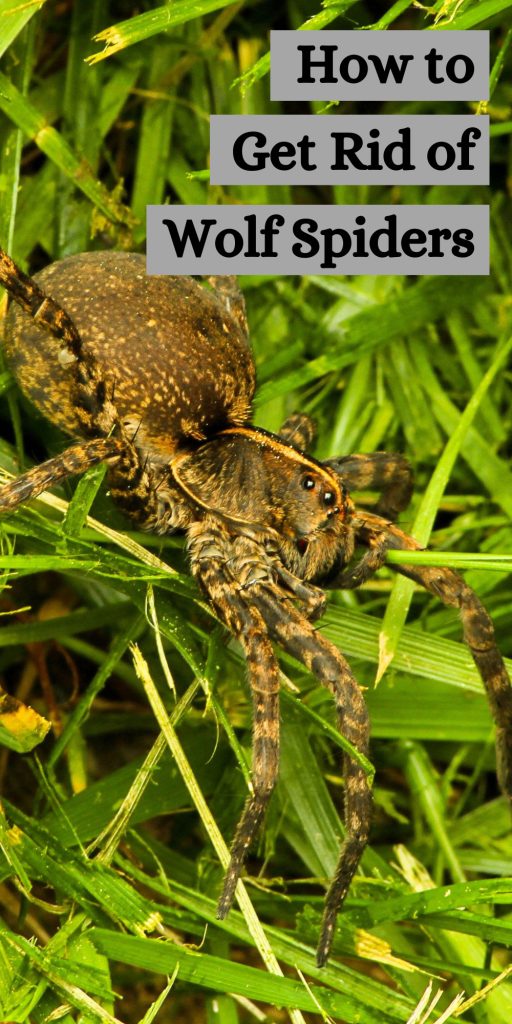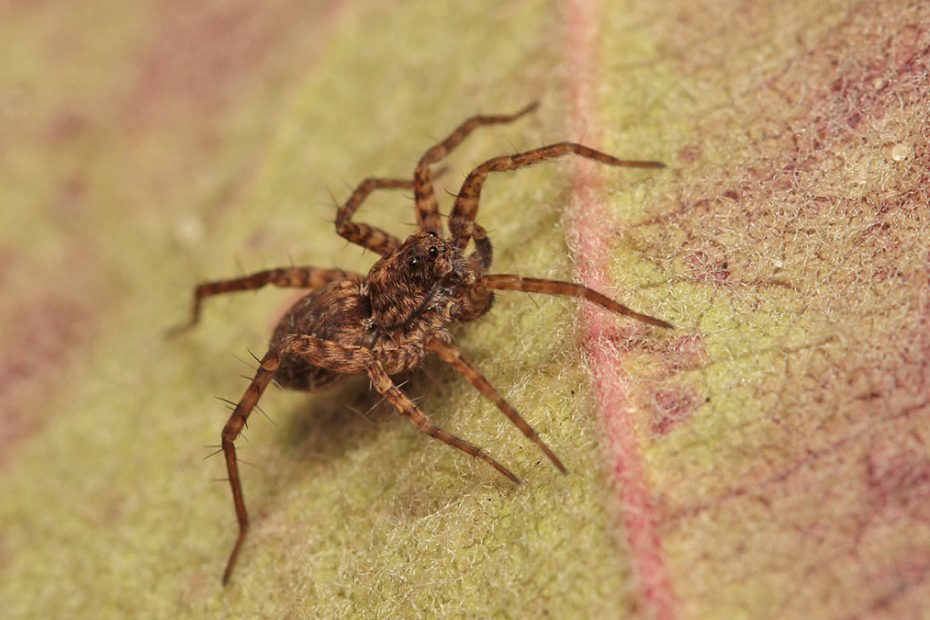Finding wolf spiders lurking in your home can be unsettling, but don’t worry—you can handle it. These fast-moving arachnids might look intimidating, but there are effective strategies to keep them at bay. Whether you’re dealing with a minor invasion or want to prevent future encounters, understanding how to get rid of wolf spiders is crucial.
In this guide, you’ll learn practical steps to eliminate these pests and create a spider-free environment. From natural remedies to preventive measures, we’ve got you covered. Say goodbye to wolf spiders and hello to peace of mind in your home.
Key Takeaways
- Identify and Understand Wolf Spiders: Recognize wolf spiders by their distinctive appearance and behavior to implement appropriate control strategies.
- Importance of Removal: Removing wolf spiders can prevent potential health risks, alleviate psychological stress, and ensure pet safety.
- Preventive Measures: Seal entry points, reduce clutter, and maintain cleanliness to create an uninviting environment for wolf spiders.
- Natural Remedies: Utilize eco-friendly methods like essential oils, diatomaceous earth, and encouraging natural predators to manage the spider population.
- Chemical Solutions: Employ insecticides or consider professional pest control services for more severe infestations when natural methods are insufficient.

Understanding Wolf Spiders
Wolf spiders, common in homes, often cause anxiety due to their appearance and quick movements. To effectively address them, understanding their characteristics can help you manage and prevent their presence.
What Are Wolf Spiders?
Wolf spiders belong to the Lycosidae family. They don’t spin webs to catch prey, opting instead to hunt on the ground.
Key Characteristics:
- Size: Typically range from 0.4 to 1.2 inches.
- Color: Varies between brown, gray, and black, often with distinctive patterns.
- Habitat: Prefer residing in gardens, grassy areas, and secluded indoor spots.
These spiders are nocturnal hunters, which means you’re more likely to encounter them at night.
Identifying Wolf Spiders
Identifying wolf spiders accurately can help you determine the best course of action.
- Eyes: Possess eight eyes arranged in three distinct rows. The top row has four smaller eyes, the middle row has two large eyes, and the bottom row has two medium-sized eyes.
- Body Shape: Robust and hairy, with long legs adapted for fast running.
- Behavior: Unlike web-spinning arachnids, wolf spiders actively chase and pounce on their prey.
Knowing these features ensures you can distinguish wolf spiders from other harmless house spiders. Recognize them to prevent unnecessary measures and focus on appropriate control strategies.
Why You Should Get Rid Of Wolf Spiders
Wolf spiders can be intimidating and unwelcome guests in your home. It’s important to understand why their removal is beneficial for your well-being.
Potential Risks
Because wolf spiders carry certain risks, their presence in homes isn’t advisable. Although not aggressive, they can bite defensively. While a wolf spider bite is not deadly, it can cause discomfort, redness, and swelling.
- Health Concerns: Wolf spider bites are generally not dangerous but can cause allergic reactions in sensitive individuals.
- Psychological Impact: For those with arachnophobia, the mere presence of wolf spiders can cause significant stress and anxiety.
- Pet Safety: Small pets may attempt to interact with wolf spiders, leading to bites that could cause discomfort or minor health issues.
Benefits Of Maintaining A Wolf Spider-Free Home
Creating a wolf spider-free environment improves both mental and physical comfort in your living space.
- Peace of Mind: Knowing your home is free from wolf spiders reduces anxiety, especially for those with arachnophobia.
- Hygiene: Fewer spiders mean fewer webs and potentially cleaner spaces, as spiders often attract or bring in other pests as prey.
- Safer Environment: Removing wolf spiders lowers the risk of bites for all household members, including pets.
Implementing preventive measures and controlling wolf spider presence ensures a safer, more comfortable home for everyone.
Prevention Methods
Implementing preventive methods can help you keep wolf spiders out of your home. By focusing on sealing entry points, reducing clutter, and maintaining cleanliness, you create an environment that discourages these arachnids from settling in.
Sealing Entry Points
Sealing entry points prevents wolf spiders from accessing your home.
- Inspect Windows and Doors: Check for gaps around windows, doors, and frames.
- Use Caulk: Apply caulk to seal small cracks and gaps.
- Weatherstripping: Install or replace weatherstripping on doors and windows for a tight seal.
- Screens: Ensure window and door screens are intact and without holes.
- Basements and Attics: Inspect and seal any openings in basements and attics that spiders might use.
Reducing Clutter
Clutter provides hiding spots for wolf spiders. Reducing it makes your home less inviting.
- Organize Storage Areas: Keep storage areas, such as basements and garages, organized and clutter-free.
- Boxes and Containers: Use plastic containers with tight-fitting lids for storage instead of cardboard boxes.
- Furniture and Debris: Avoid piling up old furniture, debris, or unused items like bags and clothing in undisturbed areas.
- Outdoors: Keep outdoor areas tidy, including gardens and yards, by removing excess foliage, woodpiles, and rocks.
Maintaining Cleanliness
Maintaining cleanliness eliminates potential food sources and habitats for wolf spiders.
- Regular Cleaning: Vacuum and dust regularly, paying special attention to corners, behind furniture, and other seldom-cleaned areas.
- Outdoor Lighting: Use yellow or sodium vapor lights outdoors to reduce the number of insects that attract spiders.
- Trash Management: Keep trash bins closed and clean them frequently to avoid attracting insects.
- Food Storage: Store food in sealed containers to prevent insect infestations that could attract spiders.
Taking these preventive measures helps create a less hospitable environment for wolf spiders, ensuring your home stays spider-free.
Natural Remedies
Natural remedies offer eco-friendly options to manage wolf spiders. These methods, involving essential oils, diatomaceous earth, and natural predators, are effective without harsh chemicals.
Essential Oils
Essential oils can repel wolf spiders through their powerful scents. Certain oils, such as peppermint and eucalyptus, are particularly effective.
Key Essential Oils:
- Peppermint Oil: Known for its strong, minty aroma, it disrupts spider pheromones.
- Eucalyptus Oil: Features a refreshing scent that spiders find unpleasant.
- Tea Tree Oil: Contains natural repellents for various pests including spiders.
Application Steps:
- Create a Solution: Mix 10 drops of essential oil with 2 cups of water.
- Spray Problem Areas: Apply the solution to entry points, corners, and other spider-prone areas.
- Reapply Regularly: Refresh the spray every few days to maintain effectiveness.
Diatomaceous Earth
Diatomaceous earth serves as a natural insecticide. It’s derived from fossilized aquatic organisms and is safe for humans and pets but lethal to spiders and insects.
Key Properties:
- Non-toxic: Safe for household use.
- Mechanical Insecticide: Abrasive to exoskeletons of spiders, causing dehydration.
Application Steps:
- Choose Food-Grade DE: Ensure it’s safe for indoor use.
- Apply Thin Layers: Dust along baseboards, under furniture, and around entry points.
- Leave Undisturbed: Allow the DE to sit for a few days before vacuuming.
Natural Predators
Introducing natural predators can help control wolf spider populations. Certain animals and insects prey on spiders, offering a biological control method.
Key Predators:
- Birds: Many bird species enjoy spiders as part of their diet.
- Lizards: Common house geckos consume spiders and other small pests.
- Other Spiders: Larger or different species of spiders will prey on wolf spiders.
Encouraging Natural Predators:
- Create Habitat: Maintain garden areas to attract birds and small animals.
- Avoid Pesticides: Limit chemical use that could harm beneficial predators.
- Install Birdhouses: Provide shelter to encourage bird presence in outdoor areas.
By incorporating these natural remedies, you can effectively manage wolf spiders while maintaining a safe and eco-friendly home environment.
Chemical Solutions
Eliminating wolf spiders involves a range of strategies, including chemical solutions. These are effective when natural remedies and preventive measures aren’t sufficient.
Insecticides
Insecticides are a popular chemical solution for managing wolf spiders. They come in various forms, including sprays and powders.
Types of insecticides:
- Residual sprays: Remain active for weeks.
- Aerosol sprays: Offer immediate impact.
- Powders and dusts: Penetrate crevices.
Application steps:
- Identify entry points: Focus on cracks and gaps.
- Apply product: Follow the manufacturer’s instructions.
- Monitor activity: Reapply if spiders persist.
Using insecticides can provide quick results, especially for heavy infestations.
Professional Pest Control Services
Professional pest control services offer expertise and comprehensive solutions for wolf spider infestations. These services include inspection, treatment, and follow-up visits.
Key services provided:
- Thorough inspection: Identifies hiding spots.
- Targeted treatments: Utilizes specialized insecticides.
- Follow-up visits: Ensures effectiveness.
- Expert knowledge: Technicians understand spider behavior.
- Safety: Proper handling of chemicals.
- Efficiency: Faster, long-lasting results.
Consider professional pest control if your DIY methods aren’t effective.
Conclusion
By understanding wolf spiders and implementing effective strategies, you can create a safer and more comfortable home environment. From sealing entry points to using natural remedies and considering professional pest control, you’ve got a range of options to keep these intimidating arachnids at bay. Remember, a proactive approach ensures peace of mind and a spider-free space for you and your loved ones. So, take the necessary steps to protect your home and enjoy a cleaner, more comfortable living space.
Frequently Asked Questions
What are wolf spiders?
Wolf spiders are nocturnal ground hunters that don’t spin webs. They range from 0.4 to 1.2 inches in size and come in brown, gray, or black colors. Their unique eye arrangement and robust body shape set them apart from other spiders.
Are wolf spiders dangerous?
While wolf spiders can bite defensively if threatened, their bites are not deadly. They can cause discomfort and mild allergic reactions in sensitive individuals but pose no significant risk to humans.
How can I prevent wolf spiders from entering my home?
Prevent wolf spiders by sealing entry points around windows and doors, using weatherstripping, and ensuring screens are intact. Reducing clutter and maintaining cleanliness also helps keep them away.
What natural remedies can I use to repel wolf spiders?
Use essential oils like peppermint, eucalyptus, and tea tree oils as natural repellents. Diatomaceous earth and introducing natural predators like birds and lizards can also help manage spider populations.
When should I consider chemical solutions for wolf spiders?
Consider chemical solutions if natural remedies and preventive measures are insufficient. Residual sprays, aerosol sprays, and powders can be effective. Follow manufacturer instructions and monitor spider activity.
Should I hire professional pest control for wolf spiders?
Hire professional pest control if DIY methods fail. Professionals provide thorough inspections, targeted treatments, and follow-up visits, ensuring effective and safe management of wolf spider infestations.
Why is it important to keep wolf spiders out of my home?
Keeping wolf spiders out improves mental and physical comfort, offering peace of mind, better hygiene, and a safer environment for all household members, including small pets.
What should I do if I have arachnophobia?
For those with arachnophobia, taking preventive measures and keeping your home clean can help reduce spider encounters. Hiring professional pest control can also offer peace of mind.
